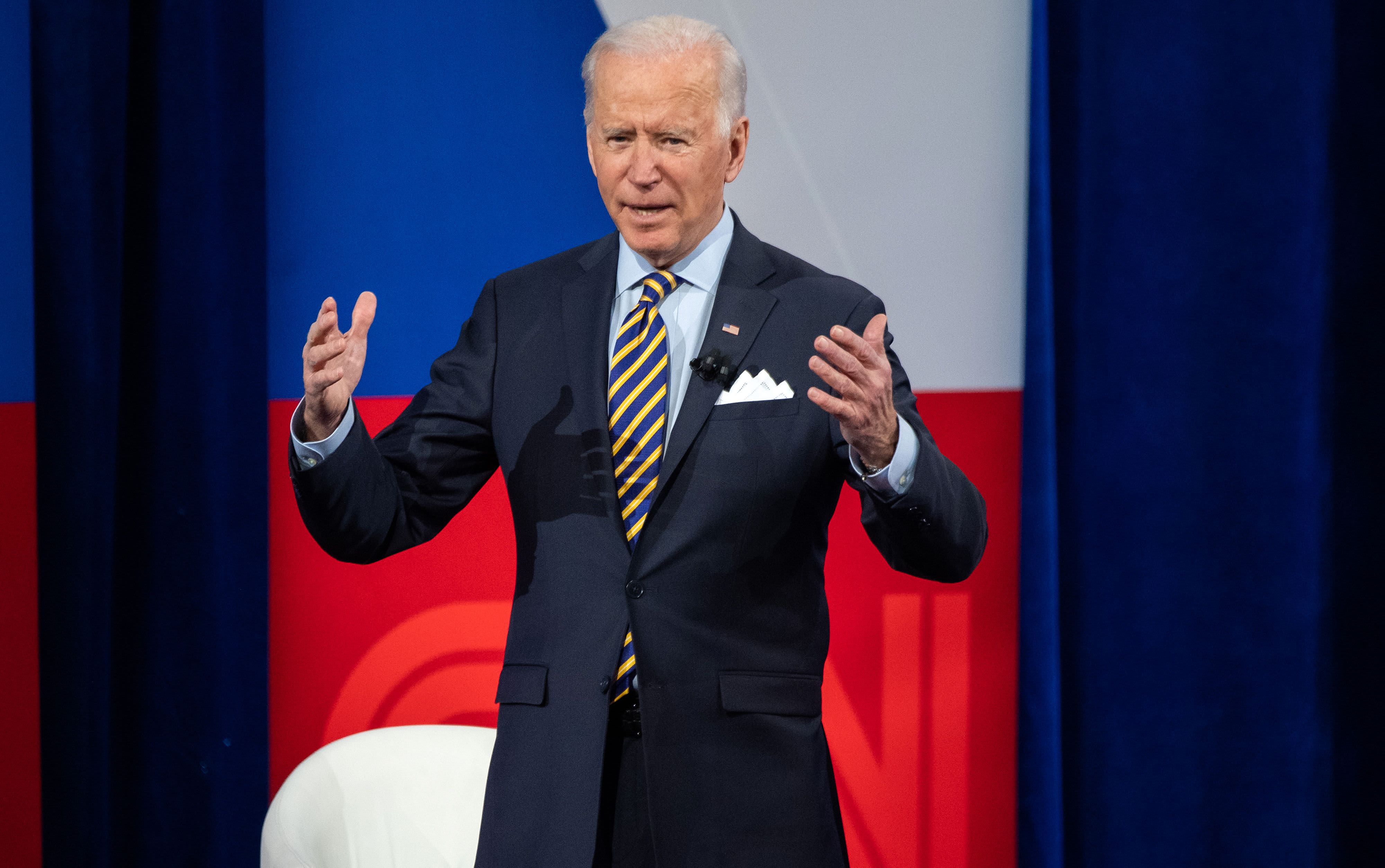
U.S. President Joe Biden.
Bloomberg | Bloomberg | Getty Images
President Joe Biden has a problem with broad student loan forgiveness.
In a recent interview with New York Times columnist David Brooks, Biden said: “The idea that you go to Penn and you’re paying a total of 70,000 bucks a year and the public should pay for that? I don’t agree.”
The president’s comments echoed ones he made at a CNN town hall back in February, where he said that it didn’t make sense to cancel the loans “for people who have gone to Harvard and Yale and Penn.”
The fact that Biden continues to bring up Ivy League schools when asked about forgiveness is causing frustration among borrowers and advocates, who say it’s a myth that people with student debt — particularly those struggling with it — have the benefit of a prestigious education behind them.
More from Personal Finance:
60,000 stimulus checks sent to dead people have been returned
Inflation-proof your spending by avoiding these purchases
54% of Americans support state cuts to unemployment
“The vast majority of students who graduate from the elite schools the president mentioned in the CNN town hall graduate with zero student loan debt,” said Eileen Connor, director of litigation at Harvard Law School’s Project on Predatory Student Lending.
Indeed, just 0.3% of federal student loan borrowers attended Ivy League colleges, according to estimations provided to CNBC by higher education expert Mark Kantrowitz.
“The Ivy League colleges are only eight colleges out of more than 6,000,” Kantrowitz said. “Ivy League colleges also have ‘no loans’ financial aid policies that significantly reduce the percentage of students who borrow.”
Each year, about 5 million undergraduate students take out loans, according to Kantrowitz. In the 2019-20 academic year, just 1,263 of those students attended the University of Pennsylvania, the college most recently used by the president to express his doubts about student loan cancellation.
By far the largest share of student loan borrowers — 49% — attended public colleges, he explained.
“Public colleges aren’t cheap,” said Kantrowitz, adding that it still costs more than $22,000 a year to attend one, including tuition, room, board and fees.
Meanwhile, another 25% of borrowers attended for-profit schools, which have come under scrutiny for misleading students about their programs and career outcomes, as well as for preying on veterans and people of color. Nearly half of those who take out student loans at these schools end up defaulting.
Ashley Harrington, federal advocacy director at the Center for Responsible Lending, said it was misleading to focus on the few borrowers from elite schools to dismiss student loan forgiveness.
“We have to look at what’s really happening with this crisis and who is actually being impacted,” Harrington said. “Student loan debt disproportionately impacts low-income, low-wealth people [and] Black and brown people are struggling the most.”
White House officials didn’t respond to a request for comment.




